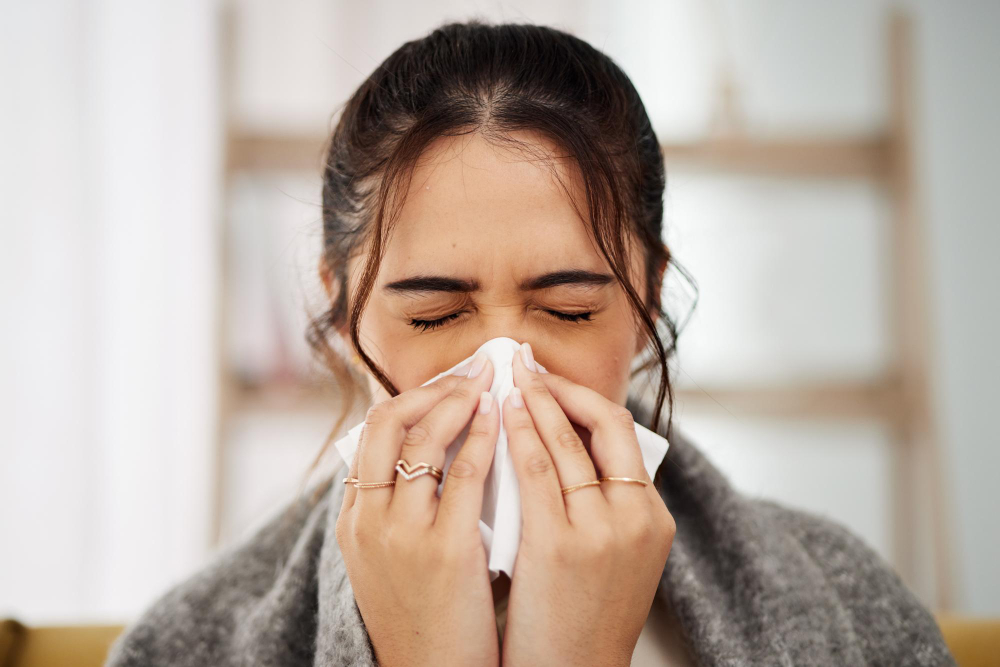What is Sinusitis?
Sinusitis is a condition where the tissue lining the sinuses becomes swollen or inflamed. Usually, sinuses are filled with air. However, when they get blocked and fill with fluid, germs can grow and cause an infection. Sinusitis can be short-term (acute) or last longer (chronic). Many people experience sinusitis during winter, especially when the weather is cold and dry.
Why Sinusitis is Common in Winter
During winter, sinusitis becomes more common for several reasons. First, cold air can dry out the nasal passages. As a result, the sinuses are more likely to get irritated. Additionally, people spend more time indoors, which increases exposure to germs. Dry indoor heating can also make the nose and sinuses dry, leading to discomfort. According to the CDC, respiratory infections like colds and flu are more frequent in winter, which can trigger sinusitis.
Symptoms of Sinusitis During Winter
Sinusitis symptoms in cold weather can be uncomfortable. However, knowing the signs can help you seek care early. Common symptoms include:
Sometimes, these symptoms can feel like a cold. But if they last more than 10 days, it may be sinusitis.
Causes and Risk Factors
There are several causes of winter sinus infection. Often, sinusitis starts after a cold or flu. Viruses are the most common cause, but bacteria or even fungi can also lead to infection. Other risk factors include:
Because winter brings more colds and dry air, these risk factors are more common during the season.
Diagnosis Methods
Doctors use several methods to diagnose sinusitis during winter. First, they ask about your symptoms and medical history. Next, they may examine your nose and face. Sometimes, a doctor will gently press on your sinuses to check for pain. In some cases, they may use a light or a small camera to look inside your nose. Rarely, imaging tests like a CT scan are needed. According to the CDC, most cases can be diagnosed with a simple exam.
Treatment Options
Treatment for sinusitis depends on the cause and how severe it is. Most cases of winter sinus infection get better on their own. However, some people may need medicine. Common treatments include:
It is important not to use decongestant sprays for more than a few days. Otherwise, symptoms may get worse.
Prevention Tips for Winter Sinusitis
Preventing sinusitis in winter is possible with a few simple steps. Try these tips to lower your risk:
By following these steps, you can reduce your chances of getting sinusitis during winter.
Lifestyle and Home Care Guidance
Along with medical treatment, home care can help you feel better. For example, you can:
These simple steps can help manage sinusitis symptoms in cold weather. However, if symptoms last more than 10 days or get worse, see a doctor.
Conclusion
Sinusitis during winter is common, but you can take steps to prevent and treat it. If you have ongoing symptoms, do not wait. Consult an ENT specialist for personalized advice on managing sinusitis during winter.

